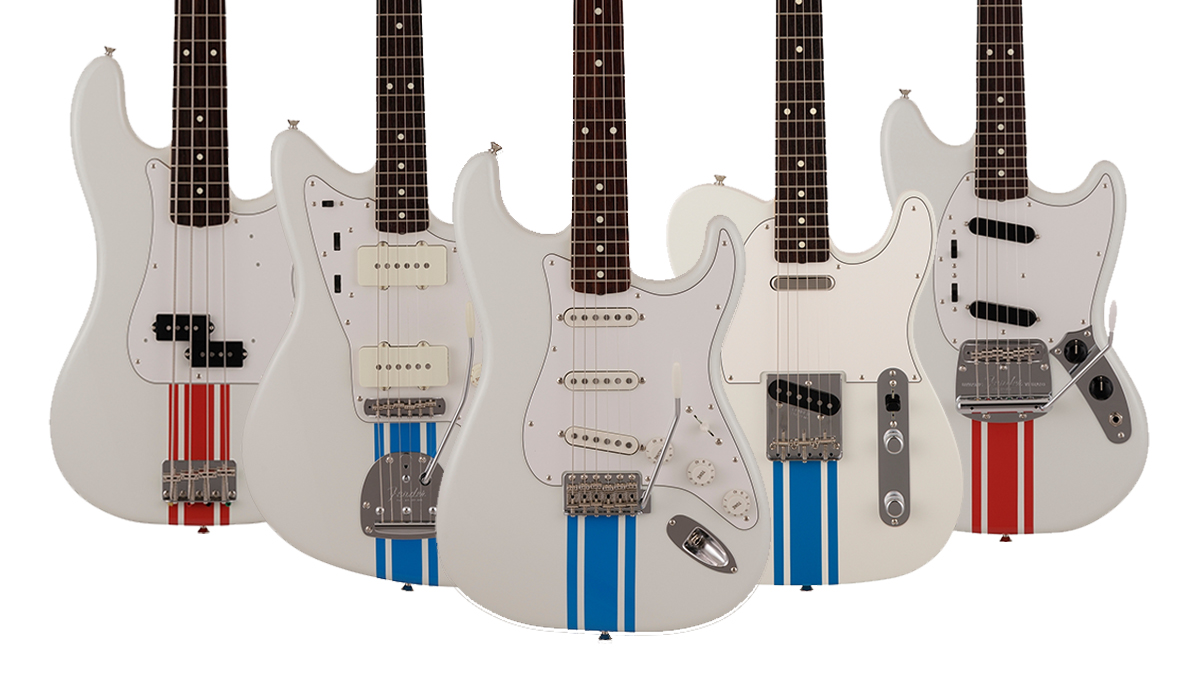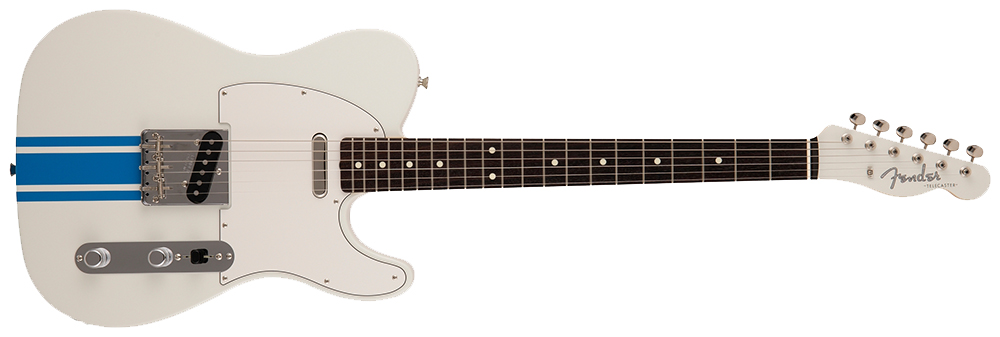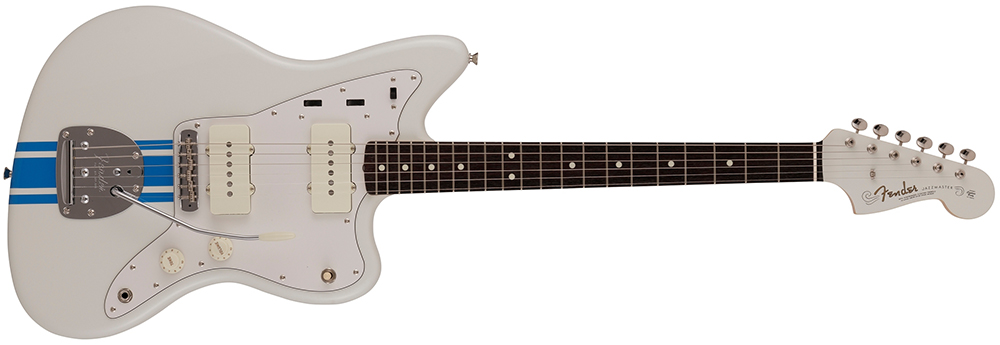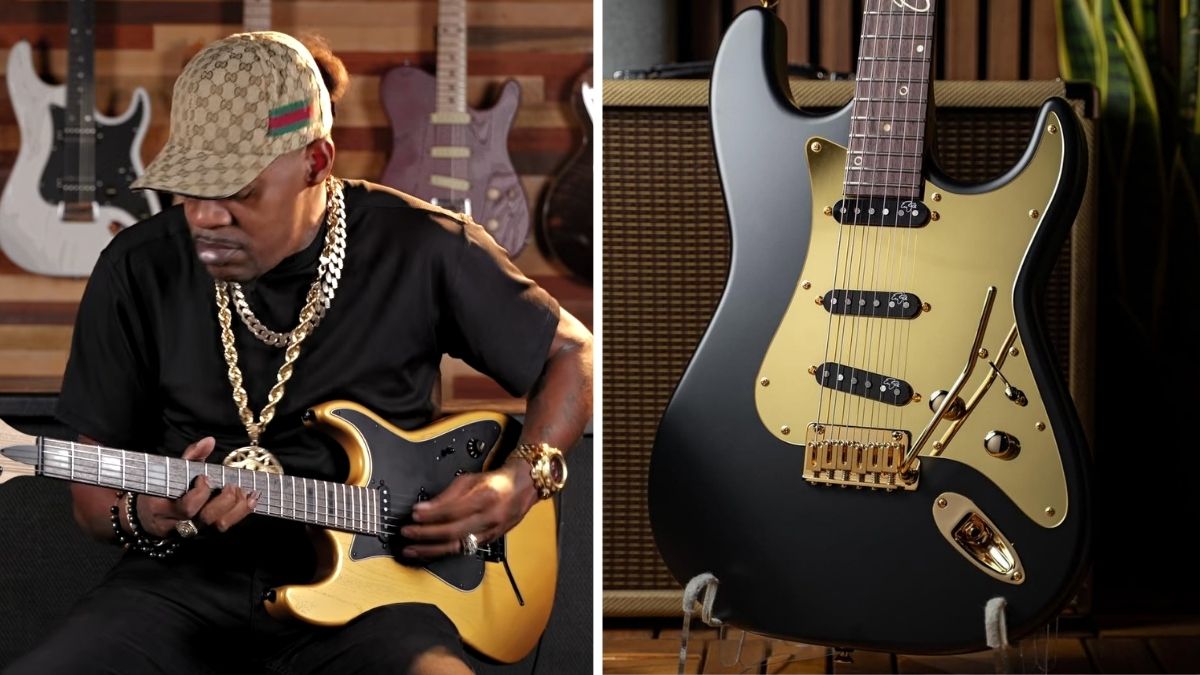Fender Japan doubles down on its vintage hot streak with racing stripe-equipped Traditional ‘60s Competition Stripe collection

Fender Japan has introduced a quintet of Traditional ‘60s Competition Stripe models – including Stratocaster, Telecaster, Jazzmaster, P Bass and Mustang options.
You probably know the drill by now: the Big F’s Japanese wing makes some seriously cool electric guitars. From Scandal’s signature guitars to the mid-priced Elemental Series, Fender Japan has developed a reputation for releasing a host of alluring axes that, to the disappointment of many guitar fans, are exclusive to the Japanese markets.
But, despite its penchant for boundary-pushing aesthetics, Fender Japan recently turned its attention to some more classic instruments, dropping the reverse headstock-equipped Traditional Stratocaster.

The five new Traditional ‘60s Competition Stripe models offer a continuation of this trend, offering some augmented takes on vintage specs, but keeping the traditional look very much intact.
The words “Fender” and “Competition” are already well acquainted, especially with the existence of the Fender Competition Mustang – the same instrument that was championed by Kurt Cobain.

As such, purists will be pleased to hear that a Mustang has been included in the five-strong drop, but the revamped Traditional ‘60s Competition guitars take things one step further by trading the minimalist, sash-like side stripe for a fully fledged racing stripe.
Decked out in Olympic White, each new guitar – a Stratocaster, Telecaster, Jazzmaster, P Bass and Mustang – features either a blue or red stripe running in line with the neck, and boasts a spec sheet that pays homage to ‘60s-era builds. As such, you’ll find 21 vintage-style frets, 9.5”-radius rosewood fingerboards and bone nuts, as well as white dot inlays.
All the latest guitar news, interviews, lessons, reviews, deals and more, direct to your inbox!

There are a few departures from the vintage spec: basswood bodies are used across the board – as opposed to alder alternatives found on true vintage instruments – and are paired with a Traditional Series-standard U-shape maple neck, which is drafted in over the popular C-shape profiles of ‘60s electrics.
However, Fender Japan is quick to note these models fuse “traditional aesthetics” with more contemporary Japanese craftsmanship.

The Strat, Tele, Jazzmaster and Mustang also feature 25.5” scale lengths – the bass guitar features a 34” scale – with each model flashing hardware in keeping with each of their vintage predecessors.
The main differences between each example – aside from hardware and body shape – can be found in the electronics department. Again, each guitar does its best to capture a ‘60s-era playability and tonal spectrum by way of era-appropriate configurations and controls.
That means it’s three vintage-style single-coils for the Strat, two for the Tele, a pair for the Mustang, and a set of Jazzmaster single-coils for the offset. The P Bass, meanwhile, comes equipped with a sole vintage-style split single-coil pickup.

As is the case with all Fender Japan releases, the Traditional ‘60s Competition Stripe models are exclusive to the Asian market, save for some notable import fees.
For those tempted, though, prices for the Traditional '60s Competition Stripe guitars start from 137,500 Japanese Yen – that's approximately $1,050.
Head over to Fender Japan to find out more.

Matt is the GuitarWorld.com News Editor, and has been writing and editing for the site for five years. He has a Masters in the guitar, a degree in history, and has spent the last 19 years playing everything from blues and jazz to indie and pop. During his GW career, he’s interviewed Peter Frampton, Zakk Wylde, Tosin Abasi, Matteo Mancuso and more, and has profiled the CEOs of Guitar Center and Fender.
When he’s not combining his passion for writing and music during his day job, Matt performs with indie rock duo Esme Emerson, and has previously opened for the likes of Ed Sheeran, Keane, Japanese House and Good Neighbours.
